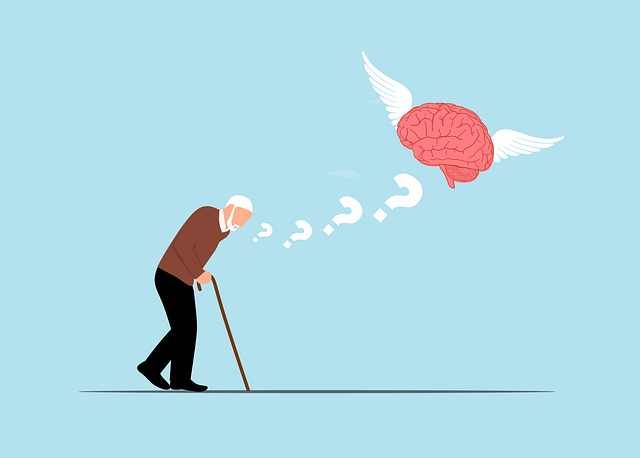Broomfield Adolescent and Teen Therapy emphasizes the critical role of emotion regulation in adolescent development, aiming to prevent mental health issues. Through holistic practices like mindfulness exercises, deep breathing, compassion cultivation, and mental wellness journaling, teens gain emotional intelligence and resilience. The approach teaches them to manage stress, make better decisions, and maintain healthy relationships, ultimately enhancing academic performance and overall well-being. By integrating these skills at home and school through consistent practice and open communication, parents and educators can foster a supportive environment for emotionally regulated adolescents, contributing to healthier transitions into adulthood.
Emotion regulation is a vital skill for adolescents navigating today’s challenges. This comprehensive guide explores its significance, offering insights into how the Broomfield Adolescent and Teen Therapy Approach provides effective support. We delve into key techniques taught in this approach, from understanding emotional responses to practical strategies for managing them. Additionally, we provide tips for implementing these skills at home and school, empowering teens to lead happier, more balanced lives.
- Understanding Emotion Regulation and Its Importance for Adolescents
- The Broomfield Adolescent and Teen Therapy Approach to Teaching Emotion Regulation
- Key Techniques in Emotion Regulation Training for Teens
- Implementing and Supporting Emotionally Regulated Adolescents at Home and School
Understanding Emotion Regulation and Its Importance for Adolescents

Emotion regulation is a vital skill for adolescents navigating the complexities of growing up. It involves recognizing, understanding, and managing one’s emotions effectively, which is crucial for overall well-being and mental health awareness. Adolescents often face numerous challenges, from peer pressure to academic demands, and learning to cope with these stressors is essential for their development. Broomfield Adolescent and Teen Therapy emphasizes the importance of teaching young individuals coping skills development as a proactive measure against mental health issues that may arise during these formative years.
By mastering emotion regulation techniques, teens can enhance their ability to handle difficult emotions like anger, anxiety, or sadness. This process empowers them to make better decisions, maintain healthy relationships, and improve academic performance. Stress reduction methods, such as mindfulness and deep breathing exercises, are valuable tools that can be integrated into daily routines. These strategies not only help adolescents manage immediate stressors but also foster a sense of calm and resilience in the face of life’s challenges, ultimately contributing to their overall mental health and well-being.
The Broomfield Adolescent and Teen Therapy Approach to Teaching Emotion Regulation

The Broomfield Adolescent and Teen Therapy Approach emphasizes a holistic approach to teaching emotion regulation, focusing on both the mind and heart. This method encourages young individuals to cultivate compassion towards themselves and others as a foundation for managing emotions effectively. By integrating Compassion Cultivation Practices into therapy sessions, adolescents learn to observe their feelings without judgment, fostering emotional intelligence and resilience.
The therapy approach also leverages Mental Wellness Journaling Exercise Guidance, where teens are encouraged to reflect on their experiences and emotions in a structured yet personal manner. This journaling practice allows them to track their progress, identify patterns, and develop coping strategies tailored to their unique needs. Through these techniques, the Broomfield Adolescent and Teen Therapy Approach equips young people with the tools to navigate their emotional landscapes, promoting better mental wellness and overall well-being.
Key Techniques in Emotion Regulation Training for Teens

Emotion regulation training for teens is a crucial aspect of holistic mental health care, and Broomfield Adolescent and Teen Therapy offers several evidence-based techniques to empower young individuals in managing their emotions effectively. These strategies not only help teens navigate their daily lives but also foster long-term mental wellness. One of the primary methods involves teaching mindfulness practices, such as deep breathing exercises and meditation, which enable adolescents to become more aware of their feelings and responses. By cultivating present-moment awareness, teens can learn to observe their emotions without immediately reacting, promoting emotional healing processes.
Additionally, cognitive reframing is a powerful tool in emotion regulation training. This involves helping teenagers identify and challenge negative thought patterns that contribute to intense emotional reactions. By applying mind over matter principles, teens are encouraged to replace self-sabotaging thoughts with more realistic and constructive ones. Through these techniques, Broomfield Adolescent and Teen Therapy equips young people with the skills necessary to navigate life’s challenges with resilience and emotional intelligence, ultimately enhancing their overall well-being.
Implementing and Supporting Emotionally Regulated Adolescents at Home and School

Implementing and supporting emotionally regulated adolescents at home and school is a collaborative effort that requires consistent practice and open communication. Parents and educators can play a pivotal role in teaching and reinforcing emotion regulation techniques, such as conflict resolution strategies and effective communication skills. By integrating these practices into daily routines, both settings can foster a sense of safety and resilience among teens, enabling them to navigate emotional challenges with greater ease.
Broomfield Adolescent and Teen Therapy offers valuable resources for mental health professionals seeking to enhance their approach to risk management planning. Through tailored interventions, therapists can empower adolescents to identify and express their feelings constructively, leading to improved relationships and overall well-being. By combining evidence-based techniques with a supportive environment, schools and homes can create a cohesive system that promotes emotional regulation, ultimately contributing to healthier adolescence and transition into adulthood.
Emotion regulation is a vital skill for adolescents to navigate the challenges of growing up. The Broomfield Adolescent and Teen Therapy Approach offers a comprehensive framework, focusing on key techniques like mindfulness, cognitive restructuring, and emotional awareness to foster healthy coping mechanisms. By implementing these strategies at home and school, we can support teens in managing their emotions effectively, leading to improved well-being and success.














